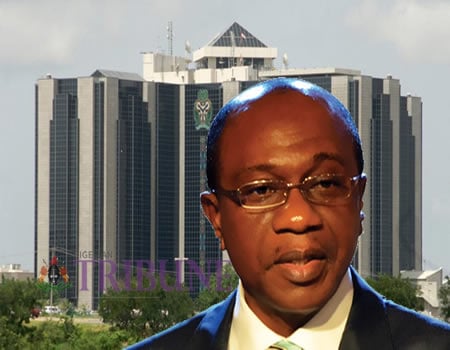As the Monetary Policy Committee (MPC) of the Central Bank of Nigeria (CBN) meets, analysts have considered parameters relevant to the Committee at this time and suggested that the final decision would be to keep all the policy parameters unchanged.
The Monetary Policy Committee (MPC) is set to meet for the third time this year on May 24 and 25, 2021. There have been a number of key global and domestic developments since the Committee last convened in March.
Analysts at an investment advisory and research company, Meristem expect these to feature in the Committee’s deliberations, and ultimately feed into its decision.
“The Committee is expected to consider the position of monetary authorities across the world, and the US Fed in particular as inflation gradually picks up in America. Also, the Committee should appraise the pace of vaccination globally and the fight against the coronavirus, particularly in India, which is one of the country’s major trading partners” it stated, adding that disinflation reported in April (18.12 per cent YoY vs. 18.17 per cent YoY in the prior month), would count as a win in the Committee’s books.
“After carefully considering what we deem relevant to the Committee at this time, we think the final decision would be to keep all the policy parameters unchanged.
“Taking into consideration all of the above, we expect the MPC to prioritize its goal of stimulating the domestic economic growth considering the recent deceleration in inflation rate and policy stance of its counterparts,” the analysts stated in a note to investors.
The COVID-19 crisis in India poses a threat to global economic growth, considering the size of the Indian economy. The knock-off effects are evident in the decline in the nation’s demand for oil, being the third-largest oil consumer worldwide.
Countries across the world have begun imposing travel bans on India, delaying the reopening of borders. In addition, India is the world’s largest vaccine manufacturer and accounts for about 20 per cent of the global export of generic drugs.
A clampdown on Indian exports may leave other countries vulnerable to a new wave of the virus, delaying efforts geared at restarting the global economy, Meristem believes.
It noted further that the rebound in economic activities especially for advanced countries has recently triggered a significant improvement in global oil demand. In the US, the EIA (Energy Information Administration) reported a decline in gasoline inventory by two million barrels week-on-week following a strong uptick in transportation data, which is now nearing pre-COVID levels.
In April 2021, the National Bureau of Statistics (NBS) reported a slower pace of increase in the domestic inflation rate.
However, “we expect pressure on food prices to persist in the near term considering the magnitude of existing structural issues, and security challenges ravaging the country’s agriculture belt.
“The CBN’s recent announcement of its intention to add both Sugar and Wheat to its FX restriction list also signals a potential surge in food prices in the short run.
“In its next meeting, we opine that the MPC’s considerations would be largely tilted towards spurring economic activities, considering the recent decline in inflation.
“We expect the Committee’s focus to be on the implication of insecurity challenges in the country on food supply and inflation.
“In our view, the cautious expansion is an attempt to mitigate the heightened inflationary pressure although the MPC in the past has stressed the fact that inflation in Nigeria is a structural (rather than monetary) phenomenon.
“In view of the recent moderation in the inflation rate, we expect sustained albeit modest growth in Net Domestic Credit and money supply over the near term,” it stated.
Meanwhile, exchange rates across official channels have remained largely stable with the official rate at N379/$ and the I&E window rate between N410/$ and N420/$.
The MPC, according to the analysts, is expected to assess current FX liquidity (which declined significantly in Q1:2021 relative to Q1:2020 relative) and its impact on economic growth.
“We are of the view, however, that the link between the key policy rate and FX inflows is rather weak as capital controls are a major hindrance to FPI inflows,” it stated.
YOU SHOULD NOT MISS THESE HEADLINES FROM NIGERIAN TRIBUNE
We Have Not Had Water Supply In Months ― Abeokuta Residents
In spite of the huge investment in the water sector by the government and international organisations, water scarcity has grown to become a perennial nightmare for residents of Abeokuta, the Ogun State capital. This report x-rays the lives and experiences of residents in getting clean, potable and affordable water amidst the surge of COVID-19 cases in the state.
Selfies, video calls and Chinese documentaries: The things you’ll meet onboard Lagos-Ibadan train
The Lagos-Ibadan railway was inaugurated recently for a full paid operation by the Nigerian Railway Corporation after about a year of free test-run. Our reporter joined the train to and fro Lagos from Ibadan and tells his experience in this report…






